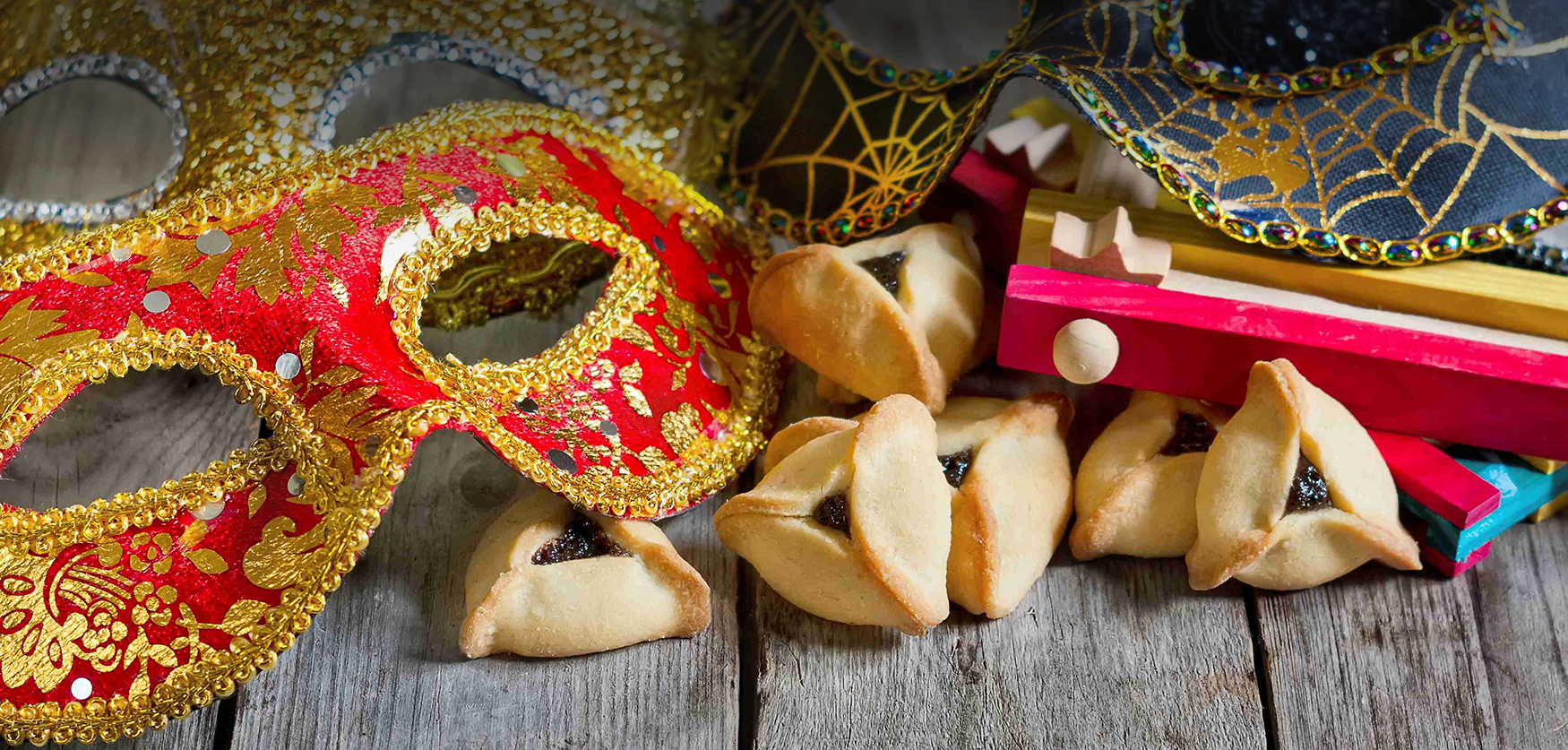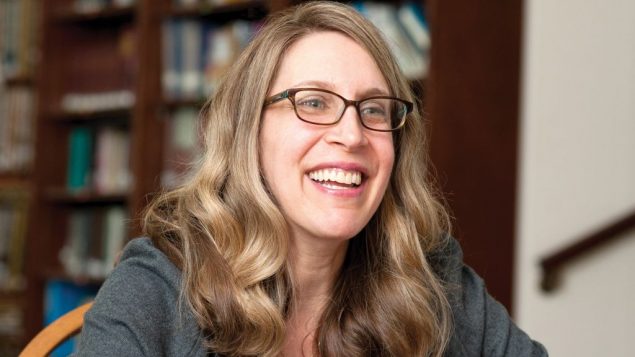Passover has so many rituals and customs to explore each year. Here some of our favorites from past years on the JWI blog. Good thing there are two seders!
By Rabbi Richard Hirsh
Despite the hyperbole that is characteristic of the Scroll of Esther, this gender-specific discrepancy in how much time must be allowed to prepare oneself for public presentation remains a conundrum in contemporary teen-age culture, inside the synagogue as well as outside. There remain significant discrepancies between Bar Mitzvah boys and Bat Mitzvah girls when it comes to "how to dress."
Our Change the Culture Student Ambassador Program empowers students to be activists, bringing conversations about healthy relationships to their campuses. One way they do this is through Healthy Relationship Shabbats - where students are brought together over dinner for activities and discussion on the qualities of a healthy relationship in a Jewish context. These student d’vars show how students are engaging closely with JWI’s work, and framing their college experience through ancient text.
By Rabbi Donna Kirshbaum
As Hanukkah approaches, we are reminded that we are not the first generation of Jews who have had to balance the desire for peace with the necessity of force. We gather around hanukiot, kindling light against the many kinds of darkness that threaten our sense of safety, security and shelter.
By Nancy C. Snowden
How should we move forward in a world that feels like it is ripping at the seams and actively seems to be working to stop us—and the Jewish community we are a part of—from being exactly who we are, Jewish. We mustn’t give in to hate, and we must continue to love each other, our neighbors and the world. Hate must not win.
Today, and every day, while I am always Nancy, I am most certainly also Binah, my Hebrew name. I am Jewish and I am unrelenting. While I am afraid, I will not let that fear change who I am.
By Idalia Friedson
We were a sight to behold: six Jews and two Hindus standing shoulder to shoulder on the synagogue bimah (stage) , smiling and teary-eyed as we watched “Abe” receive a new Hebrew name, an important part of his Jewish identity. He beamed as the Rabbi blessed him and gave him the new name, one that he could now use as a transgender man.
By Lori Weinstein
This time of year directs us to turn ourselves inside out, make amends, begin anew – with a fresh gaze and an open heart – all in our life journey to do better and be better. Open-heartedness is the journey of forgiveness. It is spacious and rejuvenating. It enables you to return to your daily battles with renewed vigor, commitment and optimism.
by Courtney Pories
No healthy friendship or relationship should make you feel intimidated, uncomfortable, or forced to do anything you don’t want to do.
by Sarah Barasch-Hagans
After Esther 4:16
“Go, assemble all the Jews who live in Shushan, and fast in my behalf; do not eat or drink for three days, night or day. I and my maidens will observe the same fast. Then I shall go to the king, even though it is against the law; and if I am to perish, I shall perish!”
by Sheila Katz
Now is the time to reclaim the history of these two women, recognize them as the community organizers and activists they were, and give them the credit they deserve. We must see Queen Esther’s decisions as intentional and courageous and embrace the bravery of Queen Vashti’s disobedience.
by L. Goodman
After a few years, he increasingly gave me additional duties; I was thrilled not to be stuck behind my desk writing all day. I would go to sales meetings with him, he sent me to a trade show, and he would talk to me about marketing and dealing with clients. It felt good. I felt that my potential was being discovered and developed. He would occasionally call me at home to talk and I enjoyed our conversations; although, I did feel uncomfortable with the fact of them, unsure how appropriate they were, though they were always appropriate. I didn’t tell my husband, afraid he would be jealous, that he would think he could decide for me with whom I could or couldn’t talk.
by Rabbi Richard Hirsh
What an odd moment in American cultural history surrounds this coming season of Purim. The opening chapters of the Megillah are replete with narratives that resonate in contemporary terms. A husband orders his wife to appear wearing her royal diadem — and, in the midrashic imagination, “nothing else” — for the amusement of his banquet guests, none of whom speak to the inappropriate and degrading demand.
by Shira Epstein
We explored the need to hold both in our classrooms: Our biblical characters who speak up, and those whose voices are silenced or who censure themselves out of shame and fear. Those whose power is elevated through voice, and those who we never hear.
by Stephanie Black
I can feel my cheeks flush again. I can remember it like it is still happening. I can still feel the weight of hundreds of women’s eyes on me, wide and shocked, waiting for me to respond. Weeks later, though I am alone, their eyes have not left me.
by Rabbi Donna Kirshbaum
Will we as women, not to mention as role models for girls, be able to extricate ourselves from the cultural framework into which we’ve been born, built for competition among women rather than mutual support?
by Naomi Ragins Senser, Executive Board Member of SHALVA, the Jewish Domestic Abuse Counseling Center in Chicago
The Talmud teaches that anyone who has the ability to correct a situation and is derelict in doing so bears the responsibility for whatever results. If abuse is not acknowledged, it is tolerated. Standing by while a sin is being committed is a violation of Jewish law. Abuse is happening in our neighborhoods. Women and their children are being harmed. We cannot stand by.
by Rabbi Andrea Steinberger, Hillel at the University of Wisconsin, Madison.
Vashti's bravery differs from Esther's, but she was brave, too. She stood her ground. It’s time for Jewish tradition to venerate Vashti for her bravery.
How the couples in the Book of Esther communicate—or not—speaks volumes about the quality of their relationship.
Instead of using Vashti and Esther as foils for each other, let us amplify their voices as unique and independent responses to their challenging circumstances.
When we look at the Book of Esther through a modern lens, it can teach us a thing or two about developing a strong sense of self and how that enriches our relationships.
Dressing as Queen Esther is never out of fashion, but we think it’s time to branch out. While one obvious choice is to pull your hair back in a tight bun, throw on a black robe, accessorize with a lace collar, and large, dark-rimmed glasses and go as the honorable RBG, here are some other empowered women worth emulating this Purim.
You say you’ve been intending to look for a Haggadah that will “speak” to you and your Seder guests? We have a last-minute suggestion.
Sensing that “there was more to feel than I’d felt, more to understand than I knew,” Abigail Pogrebin, journalist, author and casual Jew, dove into the Jewish holiday calendar to explore what it means to live a fully Jewish life.
This Chanukah, find what in Jewish life sparks a flame and inspires your dedication.
If anyone ever told you Chanukah wasn’t important, hang on to your dreidel!
Finding the deeper meaning in the Chanukah lights helps us connect with the best in ourselves.
Chanukah without presents? We’re having nun of it. The Festival of Lights is nearly upon us. With eight days of presents, you might find yourself in need of a little inspiration. Here are some of our favorite, fun gift ideas.
Three women write about one value their different faiths have in common: respect for women.































By Erin McMullen
I was reminded during these Seders how community building is a key component of repairing our world. I observed how a group of strangers and friends can collectively share a deep commitment to making this world a more socially just and equitable place. [The Seder was] a chance to pause, brainstorm, and envision ways that we can create a better and safer world for everyone with the guidance of Jewish texts and each other.